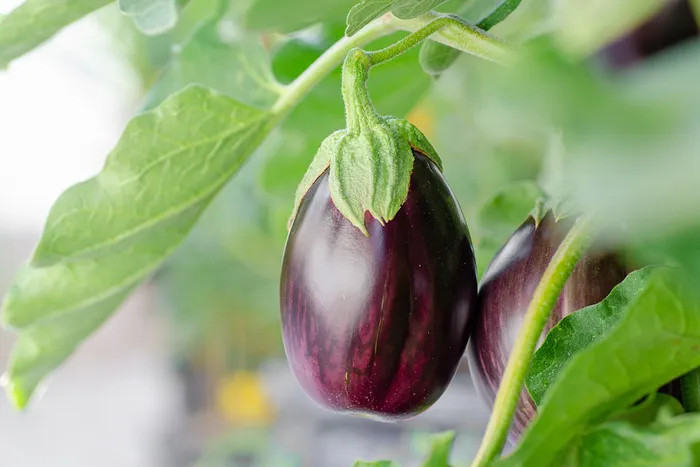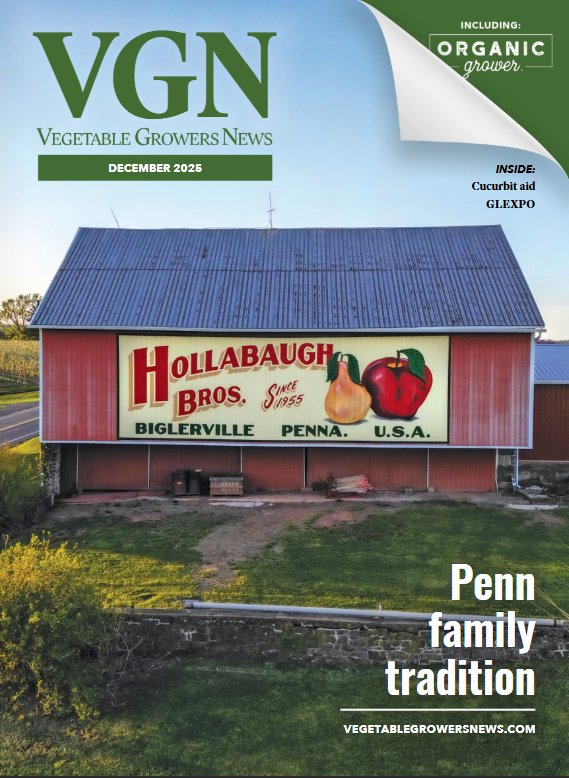Aug 19, 2024Weather challenges vex East Coast organic vegetables
Weather issues are challenging this year’s East Coast organic vegetable deal.
Sustained hot, wet weather has been affecting organic produce crops from Georgia to Maine.
Hurricane Debby and high summer temperatures have reduced the growing season for organic vegetables on the Eastern Seaboard.
Regional organic tomatoes have been hit hard by inclement weather and sourcing will soon shift to other production areas.
Some organic growers have been turning to new varieties and different crops to lengthen the season as long as eight months.

High summer temperatures gave way to drenching rains from Hurricane Debby last week, causing some issues for organic vegetables in the warm vegetable category grown on the Eastern Seaboard.
Weighing in on this year’s East Coast regional deals and the impact of the most-recent weather events was Sean McFadden, director of business development for Parker Farms in Oak Grove, Virginia.
Speaking a couple of days after Hurricane Debby blew through Virginia, Pennsylvania and New York, he said there were no adverse effects on the conventional crops but some of the company’s organic production was impacted.
“A couple of our organic farms—one in Eastern Carolina and another in Southern Virginia—were adversely affected,” McFadden said. “That’s because they can’t use some of the materials that can be used on conventional crops after a rainstorm. But they will come back in a few days.”
He relayed that the organic crops on those farms included sweet corn, squash, peppers and cucumbers.
Parker said this year’s Eastern regional deals have been fairly typical with prices and yields hovering in the mid-range. But he did agree that the above-average summer heat in June and July was not particularly helpful, though the weather forecast for the next week or two was for perfect growing weather (highs in the mid-80s), which will be a welcome relief.
James Camera, vegetable category manager for Four Seasons Produce in Ephrata, Pennsylvania, told OPN Connect on Aug. 12 that regional organic summer vegetable production (squashes, eggplants, peppers, tomatoes, etc.) was already moving toward the end of its season before receiving a quick soaking.
As a result, Camera said the length of the season for those items might be a bit shorter this summer than usual. He noted that the regional tomato production seems to have been hit the hardest by the inclement weather. He did caution that the next couple of weeks would be telling.

“If we see temperatures in the high 70s to low 80s, which is good growing weather, we might last longer,” he said. “But if we see it creeping into the upper 80s and 90s, which is not unusual in August, that’s going to create more issues.”
Camera said the very high temperatures in June and July created a bigger problem than the August rainstorm. Those elevated temperatures stress the plants and can end up shortening the season, which is contrary to the trend of the last several years.
On regional deals stretching from Georgia to Maine, Camera said just five years ago the season ran only about three or four months from June to mid-September. “Now we are seeing growers starting in April and May and lasting to October and even November,” he said. “And in fact, some of the Jersey growers went into December last year.”
The growers are turning to new varieties and different crops to lengthen the season as long as eight months. The early- and late-season crops that help extend the season are the hardier vegetables such as broccoli, leaf lettuces, greens and herbs.
Camera said the regional organic tomato crop is already showing the strain with a lot of cracking, indicating that sourcing of supplies will soon shift to other production areas, such as Mexico.
Generally speaking, Camera said East Coast growers are following the trends and producing more organic vegetables for a longer length of time to keep up with demand. He said there are more and more regional organic growers that are reliably producing one crop or another from May to mid-October—even longer when the weather cooperates.
He added there are also more and more backyard “farmers” taking care of at least their own needs in that time period. Judging from declining summer demand, Camera said the most popular backyard crops seem to be tomatoes, peppers and squashes.
— Tim Linden, freelance writer for the Organic Produce Network
Tim Linden is a journalist specializing in the ag space with a special emphasis on fresh produce. He also has written stories on a plethora of topics for other special interest publications.

















